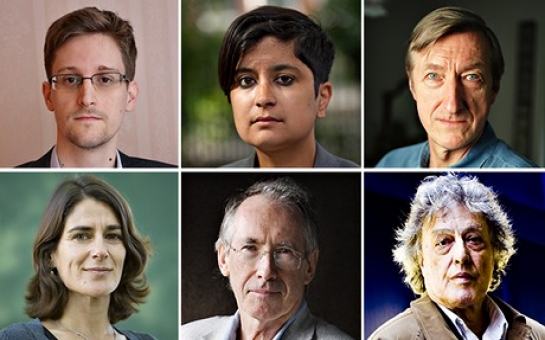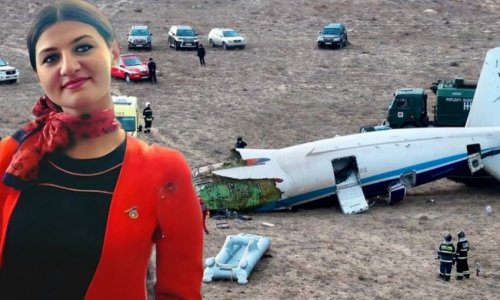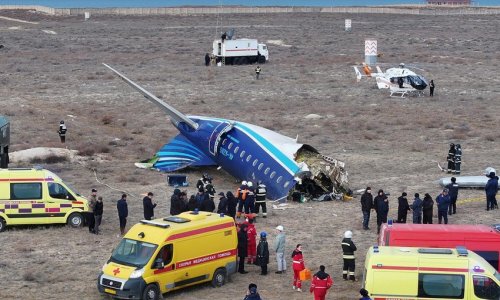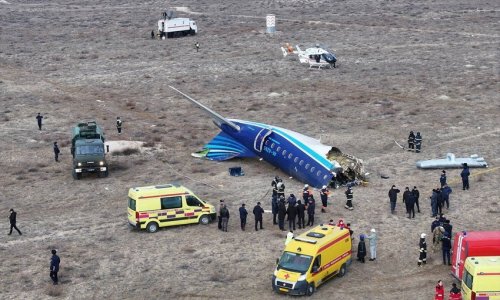Writers have always been a big part of Liberty. Since our very beginnings, as the National Council for Civil Liberties (NCCL) in 1934, they've played a key role in our battle to protect civil liberties and promote human rights in Britain. HG Wells, Vera Brittain, EM Forster, AA Milne, George Orwell and Aldous Huxley are just a few of the authors who supported Liberty in the early years – and perhaps it's not surprising that those who write feel a special affinity with Liberty's values and ideals. Now on Monday we will celebrate 80 years of "the fight that is never done".Orwell's observations on the power of language "to make lies sound truthful and murder respectable" is something that Liberty has witnessed throughout its history – "extraordinary rendition" wasn't sweet singing, but a chilling euphemism for kidnap and torture during the "war on terror". "Waterboarding" was never a seaside sport. Governments have twisted words to sanitise abomination and obscure outrage. But literature can sometimes change minds and behaviour more convincingly than the most forceful examples of political polemic or even legislation.Shami Chakrabarti is director of Liberty.Edward SnowdenToday, an ordinary person can't pick up the phone, email a friend or order a book without comprehensive records of their activities being created, archived, and analysed by people with the authority to put you in jail or worse. I know: I sat at that desk. I typed in the names.When we know we're being watched, we impose restraints on our behaviour – even clearly innocent activities – just as surely as if we were ordered to do so. The mass surveillance systems of today, systems that pre-emptively automate the indiscriminate seizure of private records, constitute a sort of surveillance time-machine – a machine that simply cannot operate without violating our liberty on the broadest scale. And it permits governments to go back and scrutinise every decision you've ever made, every friend you've ever spoken to, and derive suspicion from an innocent life. Even a well-intentioned mistake can turn a life upside down.To preserve our free societies, we have to defend not just against distant enemies, but against dangerous policies at home. If we allow scarce resources to be squandered on surveillance programmes that violate the very rights they purport to defend, we haven't protected our liberty at all: we have paid to lose it.Edward Snowden is a former NSA contractor and whistleblower.Julian BarnesIdealists like to claim that freedom is indivisible. Pragmatists know that it is not: on the contrary, it is easily divisible into thousands of parts, each of which has to be fought for, defended, and fought for again.Those who wish to deprive us of freedoms rarely do so at one go, and are skilled at assuring us that loss of freedom is really something else, something necessary and advantageous, like greater safety. As soon as a politician tells you that decent, law-abiding citizens have nothing to fear from a particular measure, you can be certain that someone, somewhere, is losing a small or larger part of his or her freedom. So we need a constant, committed, cogent defence of our freedoms: in other words, liberty needs Liberty.Ian McEwanThe idea of liberty grandly shelters many sorts of freedom, all of which, until the onset of modernity, had little definition in human aspirations. We reach easily now for concepts that once had no existence: the freedoms of universal franchise, of travel within and between countries, of assembly, association, worship, privacy, sexual equality and preference, of due process, of freedom from torture – the list goes on and is enriched by the proliferating concept of rights – of prisoners, patients, children, animals, of rights to clean water, food, a family life. Everywhere in the world, some or all of these remain contested.But one freedom underpins the entire list. Without it, the aspirations clustered under liberty's umbrella could not have come into being. Every freedom we possess or are struggling to possess has had to be thought and talked and written into existence, which is why the rock on which liberty stands is freedom of expression. Democracy without it is a sham.Historically, it was the work of many hands and free spirits to give birth to the notion that human rights are universal, inalienable and indivisible. The giving and receiving of information, speculation, criticism, fantasy, the exchange within the entire range of our intellectual capacities, is the freedom that brings the others into being. For freedom tends to evolve and proliferate – if you let it. Repressive states know this instinctively, which is why they find free-thinking journalists, intellectuals, artists (even a Russian punk collective), so threatening.In many parts of the world, an organisation such as Liberty would not be tolerated. That it has had to fight so hard and well for 80 years is a kind of unhappy birthday. But this brave outfit represents the essence of what freedom of expression enables – the flourishing of all conceivable liberties.Rosie BoycottRosie BoycottRosie Boycott Photograph: Sarah Lee for the GuardianIn the autumn in 1982, I delivered the manuscript of A Nice Girl Like Me to my publishers, Chatto and Windus. It was precocious autobiography, as I was only 31, but I justified it to myself because I wanted to write about drinking. My drinking had dominated my life in increasingly traumatic ways since I was about 25. I had ticked off all the excuses on my list until only one remained: actually losing a job because of drink. But in the summer of 1980, that one fell apart too and I checked into a rehab clinic and started the journey towards sobriety. Discovering that I could live without the bottle had thrilled and exhilarated me and I wanted to pass some of that on to other women who were – just like I had been – staring at the alcohol swilling in the glass and picking it up, despite knowing that it represented everything they had come to hate.While I drank I lived my life in a prison, the prison of addiction. If I was on a bender, there would be moments when I had to have another drink. The physical withdrawals were so intense that I was prepared to call up cab companies in the middle of the night and ask them to deliver strong beer to my door wrapped in brown paper bags (quite where they got it I've never known, but get it they did). I'd sneaked downstairs in my father's house to raid his drink's cabinet. I'd concealed small bottles of alcohol in my handbag which I'd swig in the loo, before blasting my mouth with breath freshener in an attempt to disguise the smell. I had forfeited days to hangovers and nights to searching for a supply. Even though I knew I was living a life of madness (if one of its definitions is the willingness to do to the same thing over and over again, expecting a different result) I carried on. For a long time, I seemed to have no choice, even though to the outsider, it appeared to be a madness of my own making.When I eventually put down the bottle, initially in the hideous misery of withdrawal, the relief that washed over me was vast. As the weeks went by and my soberness started to settle in, replacing the craziness with a comforting knowledge that no, today, I didn't need to pick up a drink, my world began to expand. When I was drinking it shrank to a pinhead, a tiny space where my options were limited and defined by my access to booze. Sober, the world and all its possibilities opened up like the big skies of Montana.But here I was, two and a half years later, shivering with anxiety on the pavement of a Bloomsbury Square, wondering what on earth I had done. Telling all these stories to total strangers. I'd never get a job, I thought, I'll probably lose all my friends. But, as I was to discover, I did myself a huge favour that day. By coming clean about what had happened to me, I'd freed myself from secrets. There was nothing anyone could dig up about my past that wasn't already there, in print. When you drink – or take drugs – you live by secrets and lies. Minimising, denying, prevaricating. As much as the physical damage, the lies damage your soul. Putting down the bottle and the telling the truth was the greatest freedom of all.Tom StoppardEvery act of regulation by authority is an erosion of liberty. That tells us what liberty is, and that you can have too much of a good thing. Liberty pushed to extreme is anarchy. Regulation pushed to extreme is dictatorship. Millions of words have been devoted to finding the balance, and the question remains open. The collective drift towards more regulation in the western liberal democratic model is driven by good intentions and by a mad dream of perfect fairness in which individual discretion and individual responsibility are intrinsically subversive. Infants and madmen used to be the traditional exceptions to the general notion that people should be trusted to make their own accommodations with each other, and that authority is not there to do our thinking for us. We are all halfway to being treated like infants and madmen now. As civilisation advances in complexity, liberties give way. So be it, but it's as well to know and name the retreat of liberty for what it is, and not to call it something else, before the retreat becomes a rout.Egyptian novelist and political and cultural commentator Ahdaf Soueif. Photograph: Murdo Macleod for the Guardian Photograph: Murdo MacleodThree years into our bitterly contested Egyptian revolution I understand better than ever that nothing is possible without liberty. I also understand how liberty cannot be divided. The Egyptian football ultras have a rousing anthem that we sing on our protests; a few lines in English:They said trouble ran in our blood and how'd we dare demand our rights As we come towards the centenary of the beginning of the first world war we will be reflecting, no doubt, on the reasons that dreadful conflagration was ever allowed to happen, of the consequences for us now of that war, how that war changed our world. We will ponder the lives of those who fought, and those who died, and ask ourselves why they went. Was it patriotism, was it because others went and you felt you had to go, was it for adventure, was it to fight tyranny, was it for freedom, their freedom, the freedom of those they loved, of those who came after them. Was it for many of these? Was it for us? And if so, was it worth it? Are we worth it? Do we value the freedom they left us, or simply take it for granted? Was it fought for freedom at all, or was all that simply a political smokescreen to cover what was essentially a struggle between the great European powers? Historians will argue, we will debate.But whatever was the truth behind it all, whatever was the motivation of those who went, we do know that there were those, and they were many, and on all sides, who died selflessly to ensure the freedom and survival of others.Among them was Edith Cavell, nurse to soldiers of both sides, who was executed in Brussels in 1915 for her part in assisting in the escape of 200 allied soldiers. She did what she did for the liberty of others. She said on the night before her execution, "Patriotism is not enough. I must have no hatred or bitterness towards anyone." When we remember the millions who died in the first world war over these next four years, let it be with her words in mind.Maggie O'FarrellLiberty: it conjures up not words but an image of a woman in profile, her eyes focused, her expression grave.Delacroix painted Liberty as a dark‑haired warrior with bare feet, uncovered breasts, arched brows, a bayonetted rifle in one hand and holding aloft a revolutionary flag in her muscled other arm. But her face is turned away, the sky behind her is piled with storm clouds; she is looking back at her exhausted comrades and beneath her feet are piled corpses.If the painting, La Liberté guidant le peuple, teaches us anything it is that liberty – as both concept and personification – is complex, slippery and hard to attain. Before it is reached, blood will be shed, battles will be braved, storm clouds must gather.She wears a distinctive conical hat on top of her beautiful head: the Phrygian cap, associated since Roman times with emancipation and freedom. French revolutionaries adopted the cap and turned it into their bonnet rouge; 19th-century English radicals often wore them to demonstrate support for revolutionary causes. To wear one in France was, for a long time, a punishable offence.Perhaps paintings and images are easier to fall back on when reflecting on liberty; words can be more difficult to comprehend. I don't know how to begin to process collocations such as "tortured and imprisoned without trial" or "gang-raped by militia" or "died in a detention centre". Yet these words are there, every day, in news reports. They must be read, they must be understood and remembered and retold. But how do I explain such things to my children, when I can barely grasp such horrors myself? How do I break it to them that we live in a world where such atrocities are possible?Such things must always be acknowledged and fought. Delacroix's Liberty did not give up. She fought to the end, until she stood with her flag and her cap, exhausted but triumphant. We too must fight the unacceptable and the unjust, in small and large ways, until such time where we may all live without fear, in a state of liberty.Liberty is the physical freedom to move around, to grow and develop. It also takes interior form as a space of silence and darkness in which ideas can grow unobserved. Under huge technological and economic pressure, we are in the process of turning ourselves inside out. Why keep something to yourself when you can share it? Why keep something to yourself unless you have something to hide? We are becoming more visible to each other, whether we like it or not, and so we take steps to make our newly public interiority conform to social norms – to appear healthy, legal, sane, unthreatening on the inside. Our thoughts and preoccupations leave traces, which always threaten to take on the character of evidence. Why were you looking at that? Why did you linger on that page, underline that sentence?Future historians will find it hard to explain how meekly we accepted the end of privacy. We have surrendered without much of a fight. We now live in a world where every communication can be overheard. It doesn't matter if anyone is actually listening. The suspicion is there, hovering over the keyboard, humming in the background of the call. Never more will it leave us, this self-consciousness, a technological substitute for the all-seeing eye of God. Perhaps our brief historical flirtation with autonomy was too scary. It was too hard to take responsibility for ourselves, too troubling to feel that no one was judging us and in our loneliness we were unobserved. Better now that daddy is back again. He can tell us how we ought to be.No doubt we will adapt. We will make a culture of hints and nuances. We will learn to speak indirectly, to read different kinds of silence. That was how things worked under the old 20th-century totalitarianisms. It's how it works in some parts of the world today. Our new panoptical totalitarianism will teach us these tricks. In future you will have to guess what I think by what I don't say. I will dream up towers and knock them down, I will try to follow my desires, to imagine without caution, but I'm far from sure I will succeed. This is not how I want to live, but it is how I expect to live, unless we can find a definition of liberty that we actually want to uphold, something we are prepared to fight for.Malorie BlackmanThere are certain human rights that will remain inalienable only with constant vigilance and a perpetual challenge to those who would seek to curtail, suspend or extinguish them. Liberty has to be more than a mere concept or a philosophy. I believe that with all my heart. That's why I joined the Liberty organisation.Liberty means never having to look into the eyes of a human being who has no rights. You will never forget how that makes you feel. I am thinking about my childhood in apartheid South Africa. Here are some of the questions I asked myself when I was seven years old: "If a white adult sets his dogs on a black child or hits the child's father with sticks and whips, is he a safe person to sit next to on a bus or to say hello to over the fence? Is he mad or is he normal?"If the neighbours and police and judges and teachers say, "Of course his behaviour is normal, it's fine by us", was life worth living? And what about the people who did not think it was normal – were there enough of them in the world?I still believe that when we turn our back on human rights, we numb the knowing parts of our minds and make a space for something terrible to happen to someone else. We are connected to each other's cruelty and to each other's kindness. Nelson Mandela knew this, and if we are inspired by the courage of his forgiving message, we should never forget that he was once a man with no human rights.When my mother was young she used to wear a liberty bodice. It was tight and itchy and was to be worn whatever the weather, whatever her complaints. She was at a convent, and the idea was that somehow the liberty bodice would keep her safe, and chaste. The emancipation bodice some called it, a reminder that it had been designed to liberate women from the heavily boned and firmly laced corsets that had once been in fashion. But my mother didn't want to be safe, or chaste. It was the tail end of the 1950s, and she wanted to escape. As soon as she could she left her convent, left Ireland, left her family. Not long after, she met my father in a club in Soho and by the time she was 20 she had two children, a name she'd changed herself and her grandmother's wedding ring, to ward off hostility. But one afternoon as she waited at a bus stop with her toddler and a new baby in a pram, she was spotted by an acquaintance of her parents. Within a week she had a letter. "You've made your bed and now you must lie on it."But at least they didn't send anyone from the church to take away her babies, or lock her away with the Magdalene sisters, as she'd feared. And she was free, to make her bed, to lie on it or, if she chose, to take her liberty bodice, or her bra for that matter, and throw it on the fire.Liberty is a woman. From the Roman goddess Libertas, to Delacroix's bare‑breasted Marianne astride the barricades of revolutionary Paris, to the Statue of Liberty in New York harbour – throughout western history Liberty has been depicted as female. As the more animalistic, the "wilder" sex – the sex which must be ruled rather than ruling – woman embodies a primal lust for liberty. But what does liberty mean for women in a male-dominated world?The first woman to pose this question in a systematic way was the late 18th-century revolutionary feminist Mary Wollstonecraft, author of A Vindication of the Rights of Woman (1792). Writing at the height of the French revolution, when male political reformers on both sides of the channel were proving reluctant to include women in their libertarian programmes, Wollstonecraft demanded to know how liberty could be the prerogative of one sex only.So long as women remained subordinate to men, "convenient slaves" rather than equal citizens, true liberty would be impossible. "Equality is the soul of liberty," Wollstonecraft's acolyte Frances Wright wrote in 1829. "[T]here is, in fact, no liberty without it."Wollstonecraft also represented this egalitarian liberty as a woman, but not as a fierce bare-breasted Marianne but as a godly "mother of virtue", progenitor of a better world. "The image of God implanted in our nature is now more rapidly expanding; and, as it opens, liberty with maternal wing seems to be soaring to regions far above vulgar annoyance, promising to shelter all mankind."Many people now regard liberty and equality as incompatible political goals. Policies designed to promote greater economic and social, including female equality, are said to infringe our liberties. The structural inequalities that shape women's lives, that limit their public roles and make them, as a group, poorer than men, more vulnerable to "austerity" economics and welfare cutbacks, are shrugged aside.Yet without equality, Lady Liberty is no icon of freedom but a prisoner of gender – from which it will probably take another wave of feminist activism, another generation of Wollstonecraft's daughters, to finally release her.Yasmin Alibhai-BrownI was born in Kampala, Uganda, then ruled by the British. And, since most Britons don't know what that was like, let me tell you: it was rule without consent; there was no democracy, no accountability; we were, de facto, racially segregated though no signs or laws ever affirmed this; we were banned from speaking our home languages in school; the law courts mostly tried black felons and though justice was fair, presiding judges were all white; petty rules were imposed and we were not free to criticise any of the above. My first brush with this finely managed autocracy was when I was about nine. I was at the Odeon cinema one Saturday morning to see a Charlie Chaplin film. All the kids had settled into seats, were eating sweets and making a din. The lights went down, the screen lit up and God Save the Queen was played. Suddenly, the children stood and sang as if their hearts would burst with love for a crowned woman thousands of miles away. I didn't stand up, already a rebel, anti-monarchist and embryonic democrat. They threw me out.Independence came in the early 60s and Ugandans were elated. But we, within months, seemed to be losing our fragile rights. Idi Amin was the general, Milton Obote the first elected president. Between them they started a reign of terror. People disappeared, mutilated bodies were found on the streets. Two were thrown into the stairwell of where we lived. I saw one of them, a young man, being feasted on by flies and stray dogs. I went to university and within months Amin and his army deposed Obote. The coup was "managed" by the UK, US and Israel. More killings, widespread torture. No one was safe. My university friends were taken away and never seen again for saying things in seminars or during debates, or in a college bar.In 1972 I arrived in Britain, the place, we had been taught, which had the mother of parliaments, free speech, gender equality and rule of law. It took me time to get used to these entitlements. Soon after arrival I watched journalists on TV being critical and disrespectful of Ted Heath and I feared they would be taken away and hacked to death or buried forever in a prison. I was in my 20s when I first voted, felt part of a free and rule-bound society.Since 9/11, the ground has shaken beneath our feet; those rights we thought were ours forever are now conditional and easily snatched by our governments; justice is under pressure to give into propaganda and the will of the executive. Protest is a crime, prisoners are held in secret on charges not disclosed, not even to lawyers. We are spied on, phones are bugged, spies encouraged within families and places of worship. Torture has been unofficially facilitated by our state, which colludes (as do other EU nations) with America's vengeful and nebulous "war on terror". Terrorism and fanatical Wahabi Islam are bringing out the worst in the west. And I feel again that old terror in my tired bones, the feeling that life now is entirely dependent on the whims and power of those in charge. The little people suffer and fear for themselves and liberty. Just as they did when I fled from Uganda 40 years ago.In the past decades Liberty has gone from strength to strength, and its work has become more important than ever in our globalised world. It has helped to bring the European Convention on Human Rights into UK law, in effect a written version of what the UK has long held dear – whatever the splutterings that are so often heard. It has battled against racism, championed legal aid and helped those victims of war who have sought sanctuary in the UK. It has battled against the increase in state surveillance and the rights of those who have exposed it. It has championed the basic tenets that uphold human dignity in a tough and often unjust world.In 1934, the year in which Liberty was born, Evelyn Waugh's A Handful of Dust, that scathing satire of upper-class English life, was published. In the same year came George Orwell's Burmese Days, his depiction of imperial bigotry and corruption; F Scott Fitzgerald's Tender Is the Night, the story of a difficult marriage between a psychiatrist and his fragile patient; and Graham Greene's It's a Battlefield. One could say that in the interstices of all these books, there is an idea of justice. Liberty came into being to make sure that idea had reality in the world.Marina WarnerAs EM Forster's original statement of the Council for Civil Liberties declared, 80 years ago, after the death of its founder Ronald Kidd,"he championed the liberties of the people in the fight that is never done".If you don't go on fighting for it the modicum of liberty dwindles. Liberty is a bit like live yoghurt – it grows as if by magic and sweetens its medium if granted the right conditions – and it sleeps when deprived of them. The right conditions are many and complicated, but liberty definitely grows in culture and flourishes through stories and words. The laws that guarantee our liberty have to take root in that culture, otherwise they'll be broken or ignored – or, worse, reversed. This doesn't mean that writers or storytellers set out to instruct – God forbid that belief in literature's powers lead to a Stalinist writers' union style sermons and falsehoods – but it does mean that fiction in its many ancient forms – fable, fairy tale, parable, riddles – acts powerfully to create the common ground where laws guaranteeing liberty can grow (gay rights is a case in point). So for me, liberty is an open cultural space, always at risk of shrinking from a variety of stealthy as well as obvious dangers (for example, the current pressure on public institutions to find corporate sponsors; the horrible new legalistic acceptance of forms of torture)."Poetry can be strong enough to help," wrote Seamus Heaney. I think he had imagination strong enough to help. I've always trusted literature – and art – to be strong enough, in the sense of curious, open, exploratory. Can words make something happen? They have to try. But above all, in difficult times, they also act crucially to prevent some things, too. When the protests, the outcry, the arguments appear to fail, they have still turned and changed the common ground and lots worse might have happened to choke it.(theguardian.com)ANN.Az
Edward Snowden and top writers on what freedom means to them
Society
16:12 | 24.02.2014

Edward Snowden and top writers on what freedom means to them
Shami Chakrabarti
Follow us !










